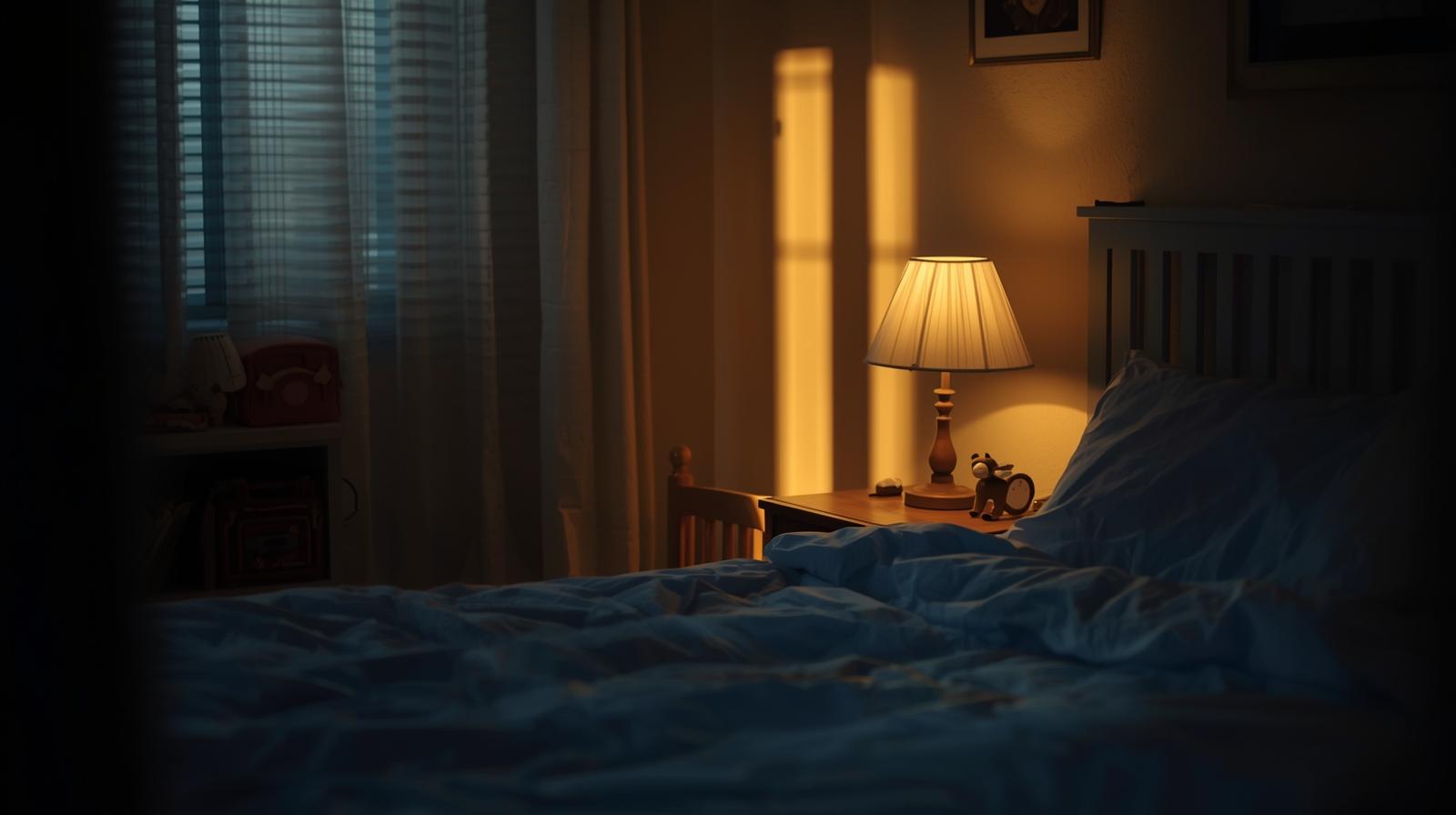Pre-Sleep Routine
The Power of a Pre-Sleep Routine:
In today's fast-paced world, quality sleep often takes a backseat. However, prioritizing sleep is crucial for our physical and mental well-being. A well-structured pre-sleep routine can significantly improve sleep quality, making it easier to fall asleep, stay asleep, and wake up feeling refreshed. This blog post will guide you through creating a personalized pre-sleep routine that works for you.
Think of your pre-sleep routine as a gentle nudge to your body, signaling that it's time to wind down. Consistency is key. Just like training your body to wake up at a certain time, you can train it to prepare for sleep. Over time, your routine will become a natural trigger, making the transition to sleep smoother and more efficient.
Understanding Melatonin and Darkness:
Melatonin, often referred to as the "sleep hormone," plays a vital role in regulating our sleep-wake cycle. Its production is intricately linked to light exposure. As darkness descends, the pineal gland in the brain starts producing melatonin, signaling to the body that it's time to sleep. Conversely, exposure to light, especially blue light emitted from electronic devices, can suppress melatonin production, making it harder to fall asleep.
Practical Tips:
- Dim the Lights: Begin dimming the lights in your home a few hours before bed. This encourages melatonin production.
- Limit Screen Time: Avoid using electronic devices (phones, tablets, computers) at least 1-2 hours before bed. If you must use them, enable blue light filters.
- Darken Your Bedroom: Ensure your bedroom is as dark as possible. Use blackout curtains or an eye mask to block out any external light sources.
- Consider a Sunset Lamp: These lamps mimic the setting sun and can help naturally increase melatonin levels.

Nutrition for Sleep: The Role of Magnesium and Other Nutrients:
What you eat and drink can significantly impact your sleep quality. Certain nutrients, like magnesium, play a crucial role in promoting relaxation and sleep. Magnesium helps regulate neurotransmitters involved in sleep and can also ease muscle tension.
Foods Rich in Magnesium:
- Leafy Greens: Spinach, kale, and collard greens are excellent sources of magnesium.
- Nuts and Seeds: Almonds, cashews, pumpkin seeds, and chia seeds provide a good dose of magnesium.
- Dark Chocolate: Indulge in a small square of dark chocolate (70% cacao or higher) for a magnesium boost.
- Whole Grains: Brown rice, quinoa, and oats are good sources of magnesium.
- Legumes: Black beans, kidney beans, and lentils contain magnesium.
Other Sleep-Promoting Nutrients:
- Tryptophan: An amino acid that the body converts into serotonin and melatonin. Found in turkey, chicken, and nuts.
- Calcium: Helps the brain use tryptophan to manufacture melatonin. Dairy products are a good source.
- Potassium: Aids in staying asleep. Bananas and sweet potatoes are rich in potassium.
Foods to Avoid Before Bed:
- Caffeine: Avoid coffee, tea, energy drinks, and chocolate close to bedtime.
- Alcohol: While alcohol may initially make you feel sleepy, it can disrupt sleep later in the night.
- Heavy Meals: Avoid large, fatty meals close to bedtime, as they can cause indigestion and discomfort.
- Sugary Foods: Sugary snacks and drinks can lead to blood sugar spikes and crashes, disrupting sleep.
Example Pre-Sleep Snack:
- A small bowl of oatmeal with berries and a sprinkle of nuts.
- A handful of almonds or walnuts.
- A cup of chamomile tea with a teaspoon of honey.
- A banana with a tablespoon of almond butter.
Magnesium Supplementation:
If you suspect you're not getting enough magnesium through your diet, consider a supplement. Magnesium glycinate is a well-absorbed form that is less likely to cause digestive issues. Consult with your doctor or a registered dietitian to determine the appropriate dosage.
Calming Down in the Last 3 Hours Before Bed:
The final few hours before bed are crucial for setting the stage for a restful night's sleep. It's a time to unwind, de-stress, and prepare your mind and body for sleep. Avoid stimulating activities during this period.
Activities to Avoid:
- Work: Stop working at least 2-3 hours before bed.
- Intense Exercise: Avoid vigorous exercise close to bedtime, as it can increase heart rate and alertness.
- Stressful Conversations: Avoid discussing sensitive or stressful topics before bed.
- Watching the News: The news can be anxiety-provoking and disruptive to sleep.
Relaxing Activities to Incorporate:
- Reading: Read a book (a physical book, not an e-reader) in a dimly lit room.
- Taking a Warm Bath or Shower: The drop in body temperature after a warm bath or shower can promote sleepiness.
- Listening to Calming Music: Soft instrumental music, nature sounds, or white noise can help you relax.
- Practicing Meditation or Deep Breathing: Meditation and deep breathing exercises can calm the mind and reduce stress.
- Gentle Stretching or Yoga: Gentle stretching or yoga can release muscle tension and promote relaxation.
- Journaling: Writing down your thoughts and feelings can help clear your mind before bed.
- Spending Time with Loved Ones: Connecting with loved ones can promote feelings of relaxation and well-being.

Creating a Sleep Sanctuary:
Your bedroom should be a haven for sleep. Make sure it's dark, quiet, and cool. Invest in comfortable bedding, pillows, and a mattress that supports your body. Consider using aromatherapy, such as lavender essential oil, to promote relaxation.
Mindfulness Meditation for Sleep:
- Find a quiet and comfortable place to sit or lie down.
- Close your eyes and focus on your breath.
- Notice the sensation of the breath entering and leaving your body.
- When your mind wanders, gently redirect your attention back to your breath.
- Continue for 5-10 minutes.
Putting It All Together: A Sample Pre-Sleep Routine
Here's a sample pre-sleep routine that you can adapt to your own needs and preferences:
3 Hours Before Bed:
- Finish work and other mentally demanding activities.
- Eat a light and healthy dinner.
2 Hours Before Bed:
- Dim the lights in your home.
- Take a warm bath or shower.
- Avoid screen time.
1 Hour Before Bed:
- Read a book or listen to calming music.
- Practice meditation or deep breathing exercises.
- Prepare your bedroom for sleep (dark, quiet, cool).
30 Minutes Before Bed:
- Drink a cup of chamomile tea.
- Do some gentle stretching or yoga.
- Write in a journal.
Bedtime:
- Turn off the lights and get into bed.
- Focus on your breath and relax your body.
- Drift off to sleep.
Conclusion:
Creating a consistent and personalized pre-sleep routine is an investment in your overall well-being. By understanding the importance of melatonin, nutrition, and relaxation techniques, you can optimize your sleep quality and wake up feeling refreshed and energized. Experiment with different activities and find what works best for you. Be patient and consistent, and you'll soon reap the rewards of a good night's sleep. Sweet dreams!
Although the best method of getting enough Magnesium is through food, this can be difficult (for many reasons) in present day times. Personally, I always take a Magnesium supplement, however, the particular one I choose is Magnesium Glycinate. This one is particularly good for promoting sleep due to its calming effect on the nervous system. After 18 months of experimenting, this is the brand I choose.
NOTE:
This post includes affiliate links to Amazon. If you choose to buy through these links, I may earn a small commission, which helps support this blog—thank you.
Recommended Magnesium Supplement:


